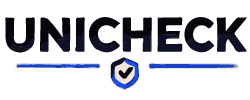Bachelor of Commerce (Accounting)
Cut-off Points
12
Bachelor of Commerce (Accounting) Overview at University of Cape Coast
The Bachelor of Commerce (Accounting) program at the University of Cape Coast offers a comprehensive curriculum designed to equip students with the knowledge and skills necessary to excel in the field of accounting. This program is offered by the College of Humanities and Legal Studies and is part of the Business & Management Studies category. With a minimum cut-off point of 12 for both men and women, the program attracts high-achieving students who are passionate about finance and business.
Curriculum Highlights
- Financial Accounting: Students will learn about the preparation and interpretation of financial statements, including balance sheets, income statements, and cash flow statements.
- Managerial Accounting: This course covers cost accounting, budgeting, and performance evaluation, providing students with the tools to manage and analyze business operations effectively.
- Taxation: Students will study the principles of taxation, including income tax, corporate tax, and international tax laws.
- Accounting Information Systems: This course focuses on the use of technology in accounting, including accounting software and data analysis tools.
- Auditing: Students will learn about the principles and practices of auditing, including internal controls, fraud detection, and compliance with accounting standards.
Learning Outcomes
Upon completion of the Bachelor of Commerce (Accounting) program, graduates will be able to:
- Apply accounting principles and practices to real-world business scenarios.
- Prepare and analyze financial statements for decision-making purposes.
- Utilize technology and data analysis tools to enhance accounting processes.
- Understand and comply with local and international accounting standards and regulations.
- Communicate effectively in both written and oral presentations within a professional accounting context.
Program Duration & Structure
The Bachelor of Commerce (Accounting) program is a four-year undergraduate degree. The program is structured to provide a balanced mix of theoretical knowledge and practical experience. Students will take a combination of core courses and electives, allowing them to specialize in areas of interest such as tax accounting, financial management, or auditing. The program also includes fieldwork and internships to provide hands-on experience in the accounting industry.
Why Choose This Program?
Choosing the Bachelor of Commerce (Accounting) program at the University of Cape Coast offers several benefits:
- Reputation and Recognition: The University of Cape Coast is one of the leading institutions in Ghana, and its accounting program is highly regarded by employers.
- Expert Faculty: The program is taught by experienced faculty members with industry backgrounds, ensuring that students receive up-to-date knowledge and best practices.
- Practical Experience: The curriculum includes internships and fieldwork opportunities, allowing students to gain real-world experience and build professional networks.
- Future Career Opportunities: Graduates of this program are well-prepared for a variety of career paths in the accounting and finance industry, both in Ghana and internationally.
- Continued Education: The program provides a strong foundation for further studies, including graduate programs in accounting, finance, and related fields.
Program Highlights
Program Level
Degree
Field of Study
Business & Management Studies
Cut-off Point
12
Institution
University of Cape Coast
University Information
Institution
This program is offered at: University of Cape Coast
College/Faculty
College of Humanities and Legal Studies
Related Programs
Diploma in Tourism and Hospitality Management
Cape Coast Technical University
Diploma in Hospitality and Institutional Management
Cape Coast Technical University
Available Scholarships
Joseph and Elizabeth Quansah Foundation Scholarship
Joseph and Elizabeth Quansah Foundation
Learn More →